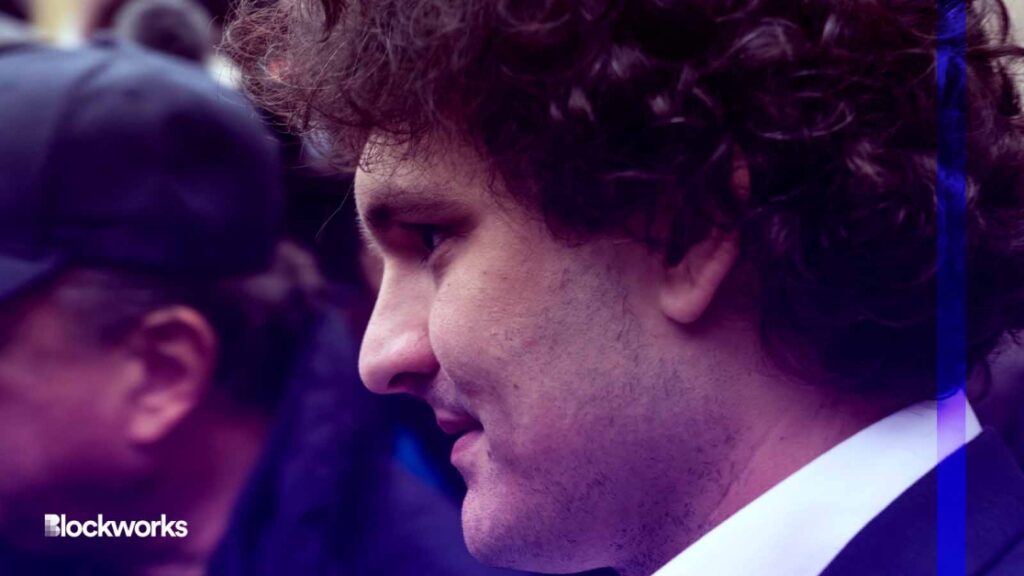We Have Seen the FTX Collapse Before

Halloween marked the 12th anniversary of MF Global’s collapse. They were the eighth largest bankruptcies in US history. A major political donor caused a multibillion-dollar shortfall in its client-owned fund by transferring the funds to cover losses from proprietary trading. Sound familiar?
James Koutoulas, co-founder and trustee of the Commodity Customer Coalition. LetsGoBrandon.com Foundation.
If you have been following the case of FTX founder Sam Bankman Fried, aka SBF, who was just convicted of seven felonies and could face up to 110 years in prison. Federal criminal proceedings are almost unprecedented in their efficiency. The case ended in conviction less than a month after FTX collapsed.
SBF’s case was handled as quickly as possible, but its potential victims of hundreds of thousands will have to wait a long time before they receive a refund. An estimated $8 billion in customer assets was lost in the FTX scam. The exchange’s leadership, led by bankruptcy expert John J. Ray III of Enron, has been slow to claw back some of those funds. However, it remains unclear how much and when assets will be returned to FTX customers.
SBF’s swift criminal conviction is in stark contrast to a very similar case: MF Global.
MF Global, a 200-year-old commodities brokerage firm, has hired former Goldman Sachs co-CEO Jon Corzine to run its operations, turning it into an investment banking firm. Corzine invested virtually all of the company’s capital in risky European government bonds – with leverage of 30:1.
Corzine hid this concentrated risk from rating agencies using offshore and complicated systems for 17 months. He waited for his bargain, which he hoped would bear fruit. Previously, MF Global’s credit rating was downgraded and JPMorgan Chase, the company’s largest lender, issued a $1 billion margin call.
Corzine ordered the falsification of a segregated account statement to allow him to plausibly deny transferring client funds to satisfy his margin calls. The transfer was made over taped wires, and the resulting shortfall was the first in U.S. history for a customer-segregated fund. A total of $1.6 billion in funds was lost.
I was a 30-year-old manager of Typhon Capital Management, a non-practicing lawyer who had never taken a bankruptcy course or litigated. Two of my clients had decided to transact their separately managed accounts through MF, the largest non-bank commodity broker in the world. I did everything I could to help them by getting a temporary New York license and filing an expedited application.
The story spread like wildfire and more than 1,000 people a day called our office asking for help. My little sister Diana was so busy at Typhon that she even heard the phones ringing in her sleep.
John L. Roe was one of the callers. He is a commodities broker at MF Global with 1,000 clients and a father who serves in Congress. John Roe came up with the idea of creating the Commodity Customer Coalition as a voluntary effort to coordinate resources. He also wrote our white paper explaining the importance of bankruptcy to the American economy.
Thanks to my Northwestern Law professor J. Samuel Tenenbaum and attorneys Trace Schmelz and David Powlen of Barnes and Thornburg, we were able to represent nearly all 38,000 of our clients pro bono. Hillary Escadeja and Susan Osmanski rounded out the small but extremely capable team of volunteers.
As mentioned, MF Global was forced to close after running a $1.6 billion deficit. This resulted in $6.7 billion in customer assets being frozen. Trader customers were also kicked off the trading floor because their accounts could not be accessed. Corzine was interviewed by the FBI just a year after the bankruptcy. He is a former U.S. Senator and Governor of New Jersey.
He was never charged. Corzine received just $5 million from the U.S. Commodity Futures Trading Commission in Obama’s final week as president, despite his huge deficit and $300 million net worth.
Like SBF, which donated millions of dollars to political candidates, Corzine was also one of Hillary Clinton’s top fundraisers. Both Corzine and SBF were close friends of Gary Gensler and enjoyed unprecedented access to him when Gensler was chairman of the CFTC or SEC.
MF Global customers received 101 cents for every dollar, thanks to the voluntary efforts of the Commodity Customer Coalition. The coalition designed an efficient preliminary action procedure, prevailed in court and before Congress against two bankruptcy trustees, and even successfully pressured JPMorgan Chase to return $1 billion in customer funds that Corzine had improperly transferred to JPMorgan Chase.
My legal opinion is that Corzine undoubtedly violated federal law and committed fraud on a regulated, publicly traded commodities broker. It also had to comply with regulations like Sarbanes-Oxley, which require high standards of internal controls. MF Global had almost none.
Corzine also used the money from FTX depositors to cover losses in his own trading company, Alameda Research. This is a similar situation to SBF’s use of FTX depositors to pay margin calls at JPMorgan.
Corzine probably lied in his testimony to Congress. He claimed “I don’t know” where the money was, despite evidence that illegal transfers were ordered and customer liquidity was misused to finance business activities.
After the Justice Department failed to charge Corzine for his many crimes, the CCC drafted a criminal indictment under Tennessee law and sent it to the Tennessee Attorney General, who also declined to file charges.
We have heard that regulation is needed in the crypto industry to bring wrongdoers to justice. When I look at the crypto industry and U.S.-based markets, I feel that intellectually honest proponents of good faith may have different opinions about whether a particular crypto token is a “security” or whether it is registered on one Exchange or a registered broker However, since there are none, laws and regulations that are intended for registered crypto exchanges must be enacted.
These and other questions are being hotly debated in our federal court system today. (Including in my case – Koutoulas vs. SEC, in SDFL seeking to quash a government subpoena on the non-security Letsgobrandon.com coin meme).
It is almost certain that the US Supreme Court will be asked to weigh in on the case.
Congress is also considering broader legislation.
Crypto haters scream that the crypto industry is Wild, Wild West and claim they have circumvented US financial regulation. MF Global proves “beyond a shadow of a doubt” that those who hate crypto are delusional. Regulations are neither a panacea nor a way to prevent crime. MF Global, an NYSE-listed company, was registered with the SEC, CFTC NFA CME FINRA Federal Reserve, CME and FINRA. None of these provisions prevented or prosecuted crimes.
MF shareholders and their customers, whose segregated accounts were supposedly sacrosanct under federal laws and regulations, ended up with an empty pocket. Who are the regulators and prosecutors in this case? Grilling.
The US has strict anti-fraud laws that are not constrained by regulatory regimes and can be used to pursue high-profile targets.
In these two cases of billion-dollar fraud, the largest political donor in an unregulated industry was convicted, while the other donor, subject to six regulators, was never charged. SBF was thought to have escaped justice due to its millions in political donations, but that does not appear to be the case.
Does his conviction give you hope that America’s two-tier justice system isn’t quite as bad as you thought? Was SBF’s crime rate too big to ignore?
The rise and fall of FTX is proof that regulation does not precede criminal prosecution. It also rubs salt into the wounds of MF Global’s 38,000 victims, who never received justice despite the company being regulated by almost every financial regulator in America.




